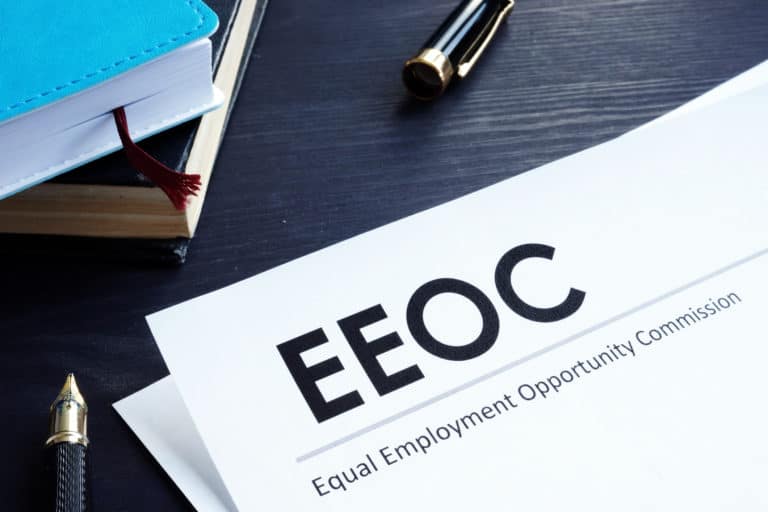
Vinny Parthasarathy is a student at Harvard Law School and a member of the Labor and Employment Lab.
The Fair Credit Reporting Act (FCRA), through Section 604, allows employers to evaluate a potential employee’s credit report when assessing their employment candidacy. The Act’s purpose is to promote the accuracy, fairness, and privacy of consumer information contained in the files of consumer reporting agencies. The three major credit reporting agencies, Equifax Persona, Experian Employment Insight, and TransUnion PEER, market their data directly for employer use suggesting that better credit history correlates with higher productivity. The data does not necessarily support this assertion.
More than ninety-six percent of employers conduct background checks on their prospective employees. And, more than fifty-one percent of employers check a prospective employee’s credit. In these checks, employers cannot see the applicant’s credit score but can see identifying information like their full name and address, credit accounts and available credit, payment history, the employment or work history that they have self-reported on credit applications, and their bankruptcies or liens. The reason employers suggest that they check an employee’s credit information is that it is indicative of one’s trustworthiness, ability to work, and propensity for fraud. However there is no clear evidence that credit history is any indicator of capacity to do well at one’s job.
The question of why employers still use these credit checks when no data suggests that they are indicative of job performance is important. In a Stanford University research study, sociologist Barbara Kivat determined that hiring professionals use credit reports for the purpose of “moral storytelling.” Here, managers attempt to determine whether the repayment of debts was your fault or due to circumstances out of your control and this is often an imprecise process. The National Consumer Law Center has suggested that employers use credit reports because they believe and buy into the myth that the ability to manage one’s own finances is more about responsibility than “luck, circumstance, or economic status.”
Credit Checks have Disparate Impacts
Credit reports in the hiring process often disproportionately disqualify people of color from employment. Black and Latino households have lower credit scores in general than white households. This is a result of the fact that the median white household possesses 20 times the wealth of the median Black household and 18 times the wealth of the median Latino household. Because there is less wealth to draw upon in times of trouble, these families need to resort to higher levels of borrowing and riskier loans, which can have a negative effect on future employment prospects (given that employers can see a history of up to 7 years of borrowing, or 10 years if the position pays more than $75,000 a year). Additionally, around 15 percent of Black and Hispanic Americans are credit invisible – having no credit history, so using credit reports to determine the best candidate for employment can disproportionately affect these groups.
Credit History Can be Misleading for Employers
Critics of the FCRA condemn the fact that the effects of a credit score decrease can seem permanent on one’s credit history. A foreclosure is able to push a credit score down by 250 points for seven years. This necessarily leads to a vicious downward spiral. Massachusetts State Senator Michael Barrett explains the cycle: “We want people who have bad credit to get good jobs. Then they are able to pay their bills and get the bad credit report removed from their records. Unfortunately, the overuse of credit reports takes you down when you are down.” This spiral will continue to impact people even though agencies like TransUnion have admitted in public testimony that there is “no research to show any statistical correlation between what’s in somebody’s credit report and their job performance or their likelihood to commit fraud,” despite their public support for its usage.
Additionally, credit reports make mistakes that are extremely difficult to correct. Twenty-one percent of Americans have reported that there was an error on their credit report as shown by one of the three major credit reporting agencies.
The FCRA attempts to safeguard against this concern but ultimately fails to do so effectively. It requires that employers notify all employees before implementing a decision not to hire them based in any part on information from a credit report. However, ensuring that an employer complies with this rule is almost impossible to do, and many job applicants will have no idea that their credit report is the reason that they have been denied employment.
Poor credit can also result from a lack of health coverage and medical debt, factors that do not relate to the employability of a job-seeking candidate. Having unpaid medical bills or medical debt is cited as one of the leading causes of bad credit among survey respondents who say their credit is poor, with more than half citing medical bills as a factor. As a result, many more people with debt have had to put medical bills on their credit cards than have those with higher credit. Forty-one percent of working-age adults have accrued some level of medical debt or reported a problem paying their medical bills. A person having a poor credit history as a result of medical debt should not be punished by a potential employer.
Solutions
As of January 2023, ten states have imposed some type of restriction on credit reporting checks in the employment process. In states with these restrictions, employment opportunities appear to shift to those with worse credit scores. More states and cities should implement these changes. In addition, the Equal Employment Opportunity Commission has sued two companies for using credit record screening by arguing that the screening is illegal when it excludes protected classes of employees. Although this argument was rejected in EEOC v. Kaplan, the EEOC should continue to pursue cases where employers’ use of credit scores has a disparate racial impact. In Congress, Senator Elizabeth Warren has proposed the Equal Employment Act for All, which would amend the FCRA to ban the use of consumer reports or investigative consumer reports except when it is required by law or for a security clearance. Congress should pass this bill and eliminate credit checks in employment.
Finally, the Consumer Financial Protection Bureau (CFPB) can also provide better aid to those who have poor credit by more carefully scrutinizing credit agencies in order to ensure greater accuracy. The CFPB came out strongly in favor of correcting issues in credit reporting when CFPB Director Rohit Chopra said that “[o]ne wrong piece of information on a person’s credit report can have destructive consequences that follow a consumer for years. Companies that fail to properly address consumer disputes in accordance with the law may face serious consequences.”
Ultimately, the use of credit reporting in employment decisions creates a downward spiral of outcomes and public officials and agencies should seek to implement changes to ensure that no candidate loses a job opportunity as a result of their credit history.










Daily News & Commentary
Start your day with our roundup of the latest labor developments. See all
February 13
Sex workers in Nevada fight to become the nation’s first to unionize; industry groups push NLRB to establish a more business-friendly test for independent contractor status; and UFCW launches an anti-AI price setting in grocery store campaign.
February 12
Teamsters sue UPS over buyout program; flight attendants and pilots call for leadership change at American Airlines; and Argentina considers major labor reforms despite forceful opposition.
February 11
Hollywood begins negotiations for a new labor agreement with writers and actors; the EEOC launches an investigation into Nike’s DEI programs and potential discrimination against white workers; and Mayor Mamdani circulates a memo regarding the city’s Economic Development Corporation.
February 10
San Francisco teachers walk out; NLRB reverses course on SpaceX; NYC nurses secure tentative agreements.
February 9
FTC argues DEI is anticompetitive collusion, Supreme Court may decide scope of exception to forced arbitration, NJ pauses ABC test rule.
February 8
The Second Circuit rejects a constitutional challenge to the NLRB, pharmacy and lab technicians join a California healthcare strike, and the EEOC defends a single better-paid worker standard in Equal Pay Act suits.